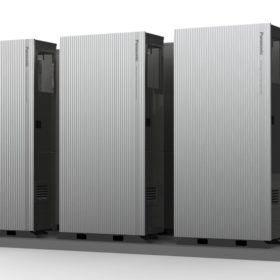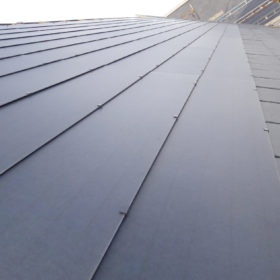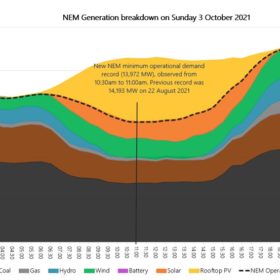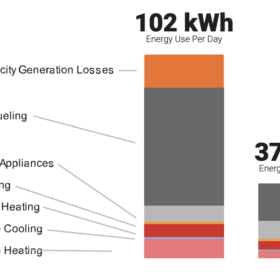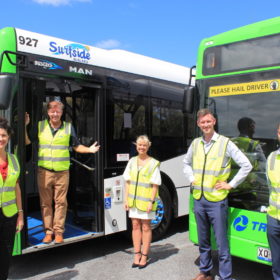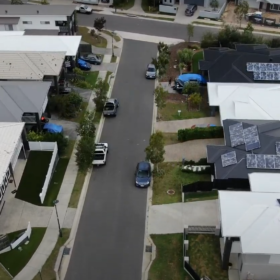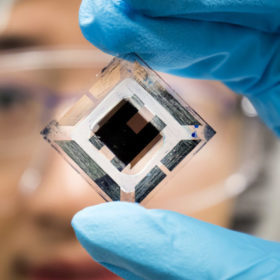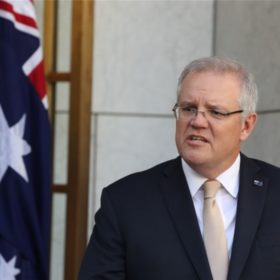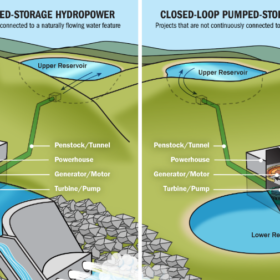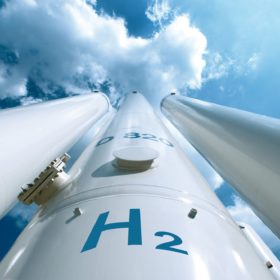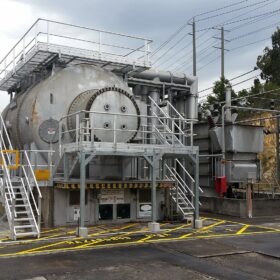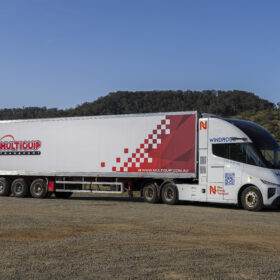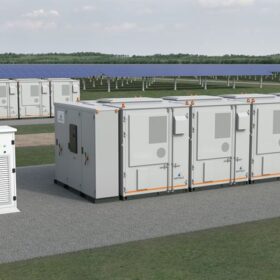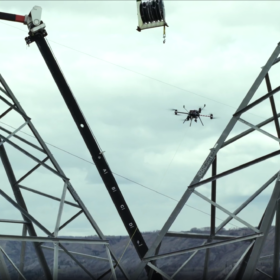Panasonic launches 5 kW fuel cell system for commercial applications
The system has dimensions of 834×417×1,766 mm and weighs 205 kg including the design panel. It achieves an electrical efficiency of 56% and can be connected with a hot water storage unit.
Solar tile with 14.2% efficiency from Denmark
Dansk Solenergi ApS has developed a 13.6 kg tile that can be used for both new buildings and building renovation. The device is currently being produced in Denmark, where the company operates a 40 MW line.
More solar records broken
On Sunday, Australia set a new record for minimum operational demand, with the national grid dipping below 14 GW. Renewables met 55% of that, while rooftop solar accounted for 34%.
Households could save $5,443 a year and a third of national emissions by electrifying, report says
Converting all home appliances and cars to run on electricity could save Australian households $40 billion a year by 2028, according to a new report from thinktank Rewiring Australia, the work of Australian-American entrepreneur Saul Griffith.
Melbourne’s bus fleet to electrify from next year in $2.3 billion contract
Melbourne-based public transport company Kinetic has been awarded a $2.3 billion contract by the Victorian government to replace more than half the city’s fleet with low or zero-emissions vehicles by 2031.
This summer be prepared for hail damaged solar panels
Last year, a day after Halloween, I saw firsthand the result of the most hectic hailstorm I’ve ever endured. Springfield Lakes, Greenbank and a few surrounding Brisbane suburbs got absolutely smoked. It was reported in February that the damage bill had reached at least $805 million. More recent reports have estimated it to be over $1 billion.
New discovery could make organic PV competitive with crystalline silicon
A group of international researchers has observed how non-radiative charge recombination occurs in organic PV and claims to have identified a potential solution that could bring this solar tech closer to crystalline silicon in terms of power conversion efficiency.
Five reasons why the Morrison government needs a net-zero target, not just a flimsy plan
Prime Minister Scott Morrison may be warming to a net-zero emissions target by 2050, but Australia is still far from adopting it – largely thanks to resistance from the National Party.
Aussie scientists champion closed-loop pumped hydro
Closed-loop pumped-hydro storage offers more chances to minimise environmental effects on water sources and overcomes the problem of finding suitable sites. According to an Australian research team, closed-loop systems could prevail on open-loop systems in the future and this trend is confirmed by another group of scientists from the United States.
How one chemical engineer is channeling Australia’s plentiful PV into hydrogen-derivative renewable fuels
Rose Amal arrived in Australia from Indonesia 38 years ago to study at UNSW. Now her leadership and research are contributing to a new sustainable economy for Australia and clean fuels for energy-hungry industries.
